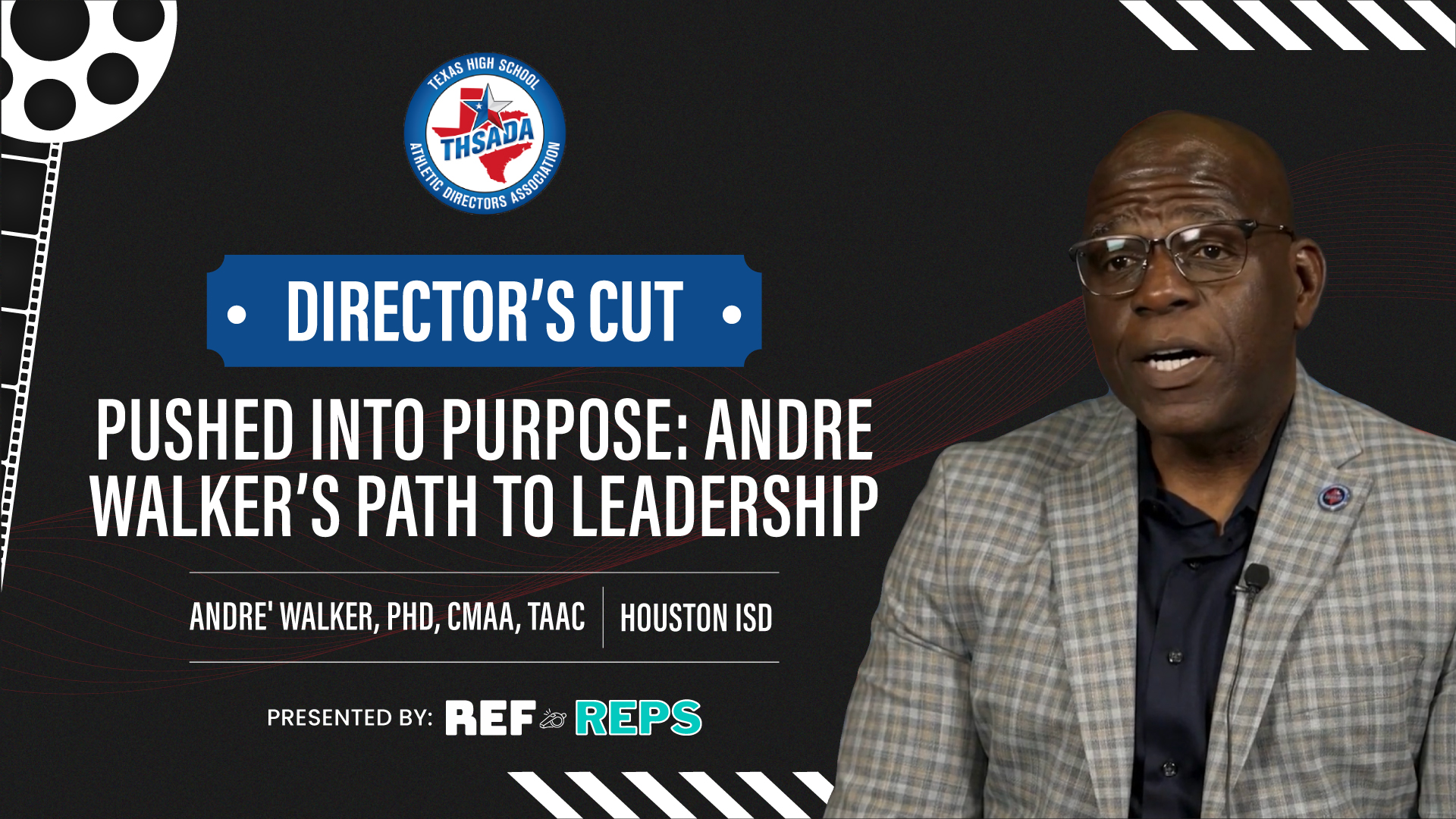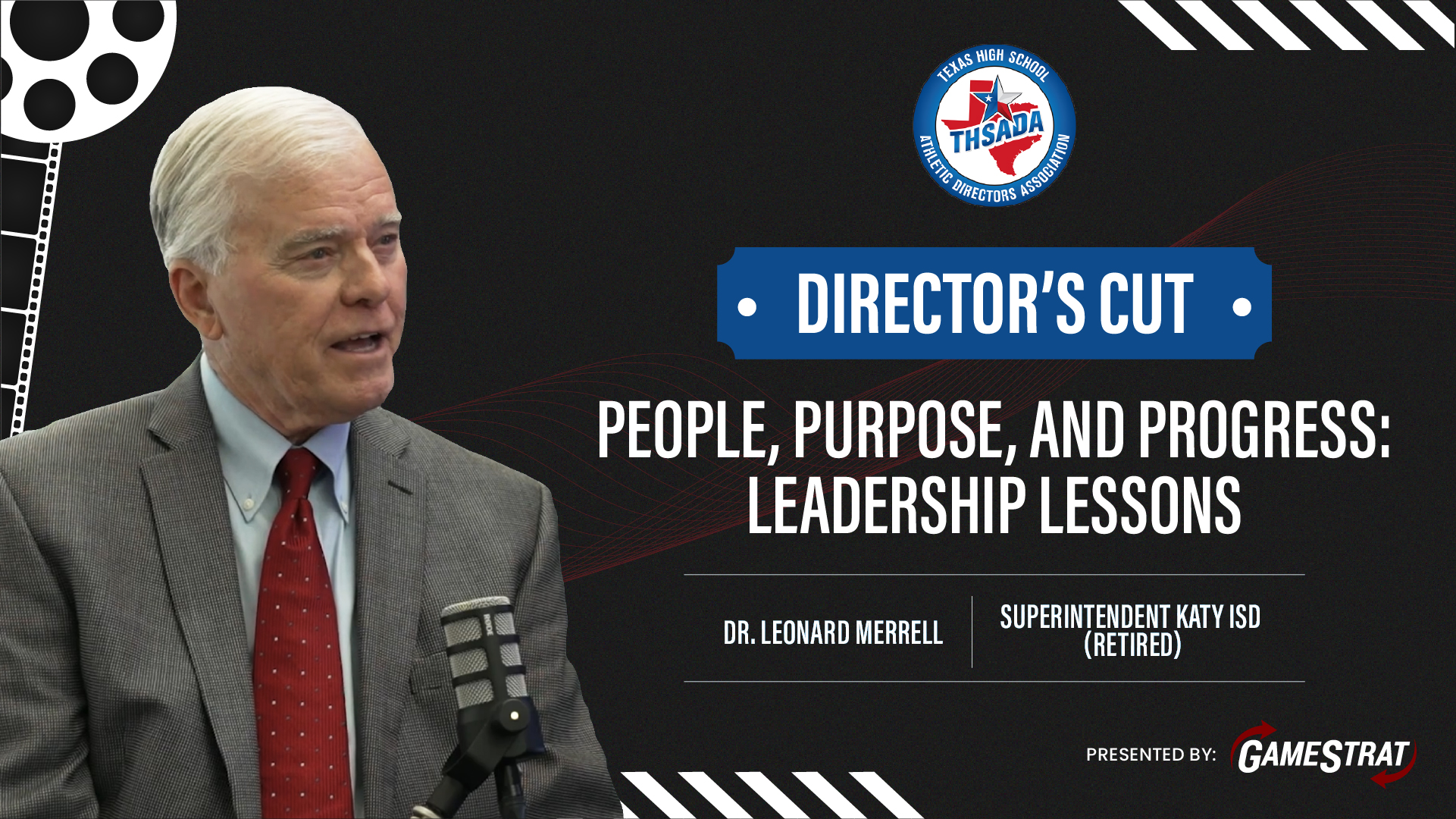In this THSADA Director’s Cut, presented by RefReps we feature Andre’ Walker, Executive Director of Athletics for the Houston Independent School District.
Continue readingTHSADA Best of 2025
2025 was a record-setting year for THSADA and this Director’s Cut has the highlights to prove it.
Continue readingTHSADA Announces 2026 Hall of Honor Class
Recognition of the new class of honorees will take place at the PBK Sports-THSADA Hall of Honor Ceremony that will be held on Sunday, May 31st, 2026.
Continue readingVoices of Victory: State Champions Panel Highlights
In this episode of the THSADA Director’s Cut, we sit down with a panel of Texas athletic directors who led their programs to state championships in 2025.
Continue readingPeople, Purpose, and Progress: Leadership Lessons with Dr. Leonard Merrell
In this episode of the THSADA Director’s Cut, we sit down with Dr. Leonard Merrell, former Superintendent at Katy ISD.
Continue readingFrom Big Districts to Small-Town Friday Nights: Rodney Chant’s AD Journey
In this episode of the THSADA Director’s Cut, we sit down with Rodney Chant, Executive Director of Athletics for San Angelo ISD.
Continue reading2025 THSADA Fall Forum Highlights
Go inside the 2025 THSADA Fall Forum, hosted at Northside ISD, where athletic leaders from across Texas gathered for two days of connection, reflection, and professional growth.
Continue readingHow to Lead Teams and Protect Your Time with Mike Buddie
In this episode of the THSADA Director’s Cut, we sit down with Mike Buddie, Director of Athletics at TCU and former Major League Baseball pitcher.
Continue readingLeading Through Chaos with Trev Alberts
In this episode of the THSADA Director’s Cut, we sit down with Trev Alberts, Director of Athletics at Texas A&M University and former Butkus Award-winning linebacker.
Continue reading3 Things Every Superintendent Wants from an AD with Richard Kilgore
In this episode of the THSADA Director’s Cut, we sit down with Richard Kilgore, Superintendent of Bruceville-Eddy ISD and the 2025 THSADA Superintendent of the Year.
Continue reading











